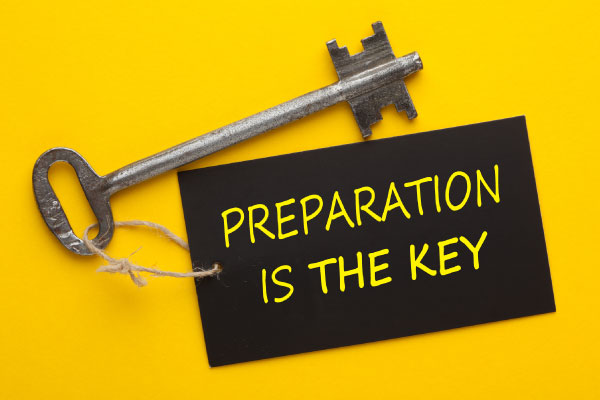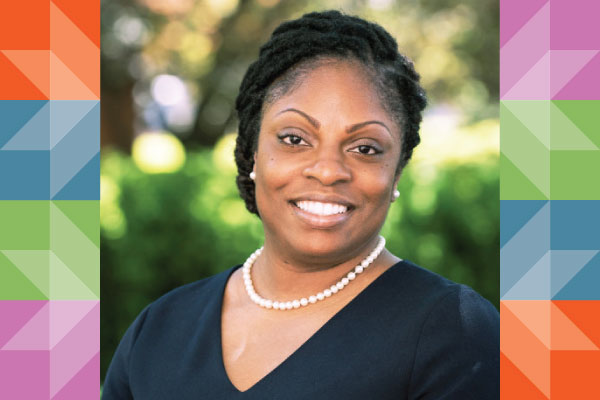
The “Why I Work in Higher Ed” series features people working in higher education to get an inside perspective of what they do and what inspires them.
Tiana Carter wears multiple hats at Michigan State University. She is a project manager for the university’s Infrastructure Planning and Facilities unit and a research assistant at MSU’s College of Natural Science. Her career at MSU began 12 years ago, progressing from administrative assistant to office manager, project manager, and eventually co-director of the MSU Women of Color Community. Tiana graduated from MSU with a Bachelor of Science degree in Neuroscience.
What initially inspired you to consider a career in higher education?
As I received promotions throughout my tenure at the University, I decided to stay in higher education because of the impact I can make on the next generation of students and MSU’s reputation overall. I’ve worked on several campus initiatives and had the opportunity to create efficiencies and fill gaps.
What are some benefits that you’ve found working in higher education?
Higher ed supported me through achieving a bachelor’s degree in Neuroscience while working full time as a project manager in construction.
Can you give an overview of your career path that has led you to where you are today?
I started working in a campus café as a temporary, on-call employee while taking classes at Lansing Community College. I was looking for something more sustainable and decided to send a mass email to various departments on campus with my resume attached. The MSU Infrastructure Planning and Facilities unit responded to me looking for a receptionist. I worked as a receptionist in the construction department until I applied for a full-time position as an Operations Coordinator in 2015. After getting the full-time Operations Coordinator position, I continued to take on more responsibility and my position evolved into a project manager. In 2020, I briefly moved to the MSU WorkLife Office and later returned to the Construction department in 2021 with a similar position. In 2023, I achieved a bachelor’s degree in Neuroscience while working full-time at MSU.
How would you describe the main responsibilities and challenges you face in your current role?
As a project manager, I am responsible for managing the scope, budget, and schedule for each project I’m assigned to. Each project is different, and my involvement can vary in stakeholder communications, design and engineering oversight, organizational strategy, vendor and material procurements, and process efficiency. I am a key stakeholder responsible for initiating and creating all capital projects in multiple systems currently at $35 billion in construction activity. All of my responsibilities require consistent communication, an ability to take initiative, and resourcefulness. The biggest challenges are navigating varying stakeholder priorities and gaining consensus on streamlining processes to support efficient work.
What are the most satisfying and fulfilling aspects of your job?
The nature of my job allows me to work with so many different partners across campus, that we get to learn about current research and campus-wide priorities. I love being a part of something that impacts people now and for lifetimes beyond me.
Most recently, I played a critical role in developing the Multicultural Center on campus, the first freestanding multicultural building at Michigan State University. Together with Brian Mullen, the project manager, I facilitated listening sessions, presented to the board of trustees, managed the organization of the budget and scope, and scheduled and maintained regular stakeholder engagement strategies. I’m excited to see this facility positively impact MSU’s campus culture for generations. In addition, I have been a co-director of the MSU Women of Color Community for 2 years and have developed programs and networking opportunities to support the University’s goals of creating an inclusive environment by retaining diverse talent.
Is there any advice you received early in your career that has stuck with you and influenced your approach to work?
A few things. Be willing to take initiative and be resourceful! Try to educate yourself or find the answer before asking a colleague. In addition, try to connect the dots. Meaning, bring together information from different sources. Be open to opportunities – honing in on your professional goals and knowing the steps to get there is important. Networking is important – it can be extremely beneficial to keep a good team of mentors and people you look up to or strive to be like professionally.
How would your coworkers describe you?
Trustworthy. Reliable. Knowledgeable. Has Integrity.
Check out Top Articles on HERC Jobs.
Interested in higher ed job opportunities? Explore our job board with about 50,000 job postings and sign up for a free job seeker account.
About the Author: Sara Ermeti has worked in HR leadership for nearly 30 years in various industries such as higher education, NFP, Religious, Financial, Entertainment, and Transportation. She is also an adjunct professor teaching courses in HR and Business. Sara is a certified coach and resume writer offering individual and business consulting through Esperto HR Office.









